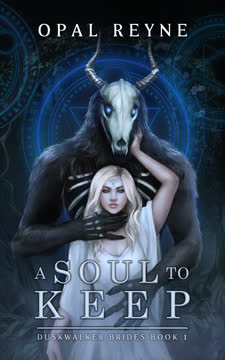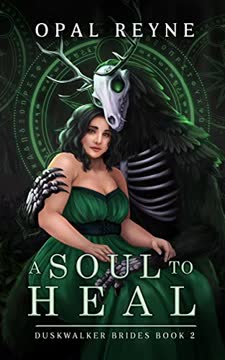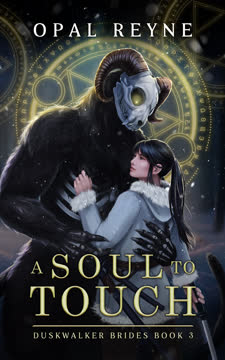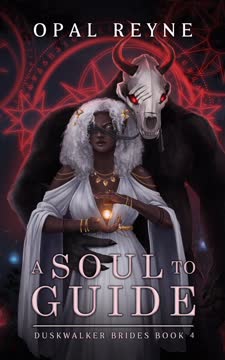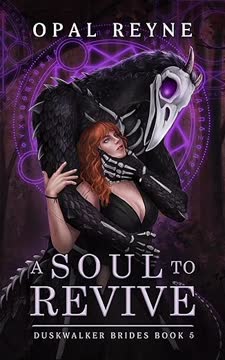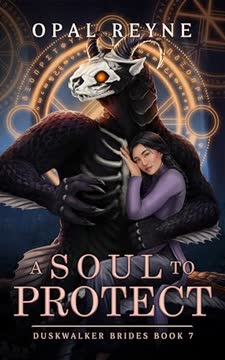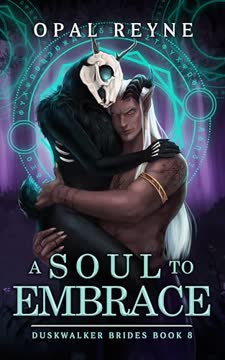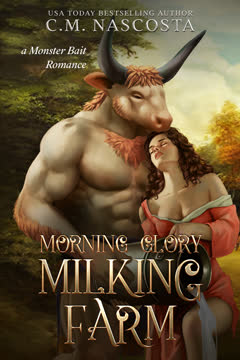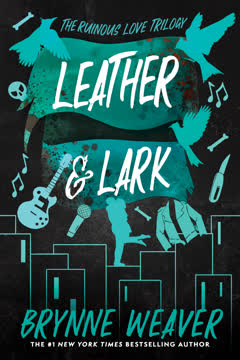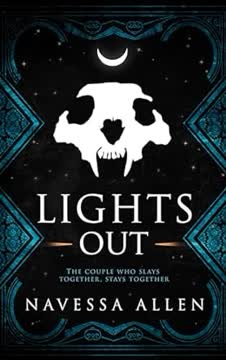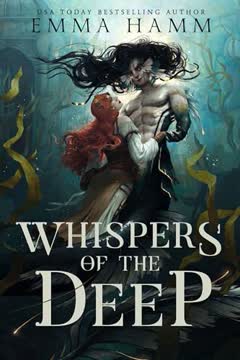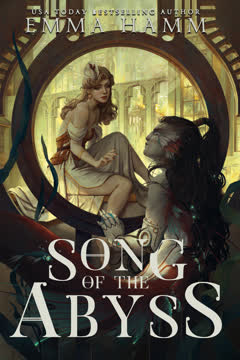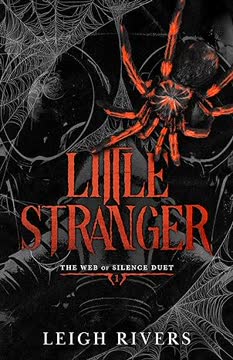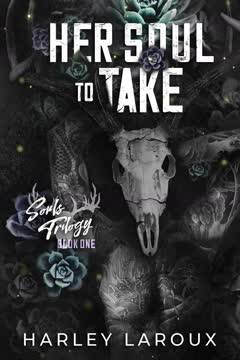Plot Summary
Monsters in the Shadows
For generations, humanity has lived in fear of Demons—creatures that stalk the night, feeding on fear and flesh. Towns are fortified, spells are cast, and the Veil—a vast, shadowy forest—marks the boundary between the known and the monstrous. Yet, even more terrifying than Demons are the Duskwalkers: ancient, intelligent beings who walk in both sunlight and shadow, bargaining with villages for protection in exchange for a human offering. In this world, fear is currency, and survival is never guaranteed. The air is thick with dread, and the line between safety and death is as thin as a single, trembling breath.
The Outcast's Sacrifice
Reia, a young woman ostracized by her village after surviving a Demon attack that killed her family, is branded a harbinger of bad omens. Isolated and blamed for every misfortune, she is forced to live on the outskirts, her only company the bitter wind and her own resilience. When the Duskwalker returns to claim a new offering, the village seizes the chance to rid themselves of her, dressing her in white and parading her as a willing sacrifice. Beneath her anger and pain, Reia burns with a desire for freedom, even as she is handed over to a creature everyone else believes is her doom.
Duskwalker's Choice
The Duskwalker, Orpheus, towers over the villagers, his skull-faced visage and ethereal wolves striking terror into all. Presented with multiple offerings, he is drawn to Reia—not for her fear, but for her defiance and anger. Unlike the others, she does not cower, and her scent is not saturated with terror. Orpheus, weary of centuries of loneliness and failed companionship, chooses her, sealing the bargain with a drop of her blood. The protection ward flares to life, and Reia is led away, her fate now entwined with the enigmatic monster who claims her as his own.
Into the Veil
Leaving behind the only home she's ever known, Reia is thrust into the Veil, the heart of darkness where Demons roam freely. Orpheus is both captor and protector, his motives inscrutable. The journey is perilous—Demons lurk, illusions deceive, and Reia's resolve is tested at every turn. She learns that Orpheus's companions are mere illusions, and that her own survival depends on her ability to adapt, to trust, and to keep pace with a being who is both terrifying and unexpectedly considerate. The Veil is a place of nightmares, but also of strange, haunting beauty.
Unlikely Companions
As days pass, the dynamic between Reia and Orpheus shifts. He carries her when she falters, tends to her needs, and reveals glimpses of vulnerability beneath his monstrous exterior. Reia, in turn, confronts her own prejudices and fears, discovering that Orpheus is not the mindless killer she imagined. Their journey is interrupted by Demonslayers—humans who hunt monsters—forcing Orpheus into a violent, bestial rage to protect her. In the aftermath, Reia tends his wounds, and a fragile trust begins to blossom, rooted in shared survival and unexpected acts of kindness.
The Journey Home
Orpheus's home is not the lair of a beast, but a carefully constructed cabin filled with trinkets, warmth, and the scent of pine and mahogany. Reia is given her own room, food from a thriving garden, and the uneasy comfort of routine. Yet, the house is also a cage, surrounded by the ever-present threat of Demons. Bathing rituals, protection spells, and the slow replacement of fear with curiosity mark the days. Reia learns of Orpheus's loneliness, his longing for companionship, and the fate of those who came before her. The house becomes a crucible where trust, desire, and resentment are forged anew.
Lessons in Trust
Reia's initial plans for escape are tempered by Orpheus's unwavering protection and the gradual realization that he values her life above all. She teaches him about human needs, crafts, and the meaning of small comforts. In return, he shares his history, his magic, and the truth about his endless hunger. Their relationship deepens through shared vulnerability, laughter, and the slow, electric burn of desire. When Reia is wounded, Orpheus's care is tender and fierce. The boundaries between monster and human blur, and the possibility of something more than survival begins to take root.
The Demon Village
Orpheus takes Reia and a fellow Duskwalker to the Demon village—a place of impossible architecture, vibrant markets, and Demons who have learned to mimic humanity. Disguised and hidden, Reia witnesses a society that is both alien and eerily familiar. She acquires tools, books, and knowledge, and sees firsthand the complexity of the world beyond human walls. The journey is fraught with danger, but also with wonder. The Demon King's presence looms, and the Witch Owl—a mysterious, powerful figure—leaves cryptic guidance. The village is a crossroads, a place where destinies are rewritten.
The Phantom's Bargain
Reia is abducted by the Demon King, Jabez, and reunited with Katerina, Orpheus's former companion. Manipulated as a pawn in a deadly game, Reia faces betrayal, jealousy, and the threat of death. When she is mortally wounded, Orpheus arrives, and in a desperate act of love and sacrifice, Reia gives him her soul. She dies in his arms, only to be reborn as a Phantom—neither living nor dead, but eternally bound to Orpheus. Their bond transcends mortality, but comes at the cost of her humanity and the certainty of what lies ahead.
The King's Game
Orpheus and Reia face the Demon King and Katerina in a final, brutal confrontation. Old wounds are reopened, truths are laid bare, and the cycle of pain and longing is broken. Reia's courage and Orpheus's love prove stronger than vengeance and manipulation. Together, they defeat their adversaries, but not without scars—physical and emotional. The victory is bittersweet, marked by loss, but also by the promise of a new beginning. The past is finally laid to rest, and the future is theirs to claim.
Death and Rebirth
Reia's new existence as a Phantom brings both freedom and uncertainty. She can never truly die, always returning to Orpheus, but the world is now both more dangerous and more wondrous. The Witch Owl reveals the origins of the Duskwalkers, the nature of souls, and the possibility of new life. Reia and Orpheus must navigate the challenges of their bond, the threat of unwanted immortality, and the question of what it means to be alive, to love, and to choose one another again and again.
A Soul to Keep
With the past behind them, Reia and Orpheus settle into a life that is both ordinary and extraordinary. They build a home together, share laughter, passion, and the quiet joys of companionship. The threat of Demons remains, but so does the strength of their bond. Reia's soul, once a source of pain and fear, becomes a wellspring of hope and belonging. Together, they face the future—not as monster and captive, but as equals, partners, and soulmates. Their love is a defiance of fate, a promise kept in the darkness.
The Witch Owl's Secret
The Witch Owl, revealed as the mother of the Duskwalkers, shares her story with Reia. She warns of the dangers of bearing children with a creature of darkness, and reveals the true nature of souls, magic, and the ties that bind. Reia learns that her new existence is both a gift and a responsibility, and that the choices she and Orpheus make will echo through eternity. The Witch Owl's guidance is both cryptic and profound, a reminder that even in a world of monsters, love and agency endure.
Becoming Bride and Beyond
Reia and Orpheus embrace their roles as bride and groom, partners in a world that will never fully accept them. They navigate the challenges of immortality, the threat of new dangers, and the joys of building a life together. Their love is tested, deepened, and ultimately affirmed—not by grand gestures, but by the daily acts of care, trust, and vulnerability. Together, they redefine what it means to be human, to be monstrous, and to belong.
A Future Together
With the world still haunted by darkness, Reia and Orpheus look to the future with hope. They dream of travel, of new adventures, and of a life lived on their own terms. The past is a shadow, but the light they share is brighter. Their story is one of survival, transformation, and the enduring power of love—a soul to keep, and a future to build, together.
Characters
Reia
Reia is a young woman marked by tragedy and ostracized by her village, blamed for the Demon attack that killed her family. Her survival is seen as a curse, and she is forced into isolation, her spirit hardened by years of neglect and blame. Psychoanalytically, Reia embodies the struggle for agency in a world that seeks to define her by fear and superstition. Her journey from sacrifice to survivor, from captive to beloved, is one of profound transformation. She learns to trust, to love, and ultimately to choose her own fate—even at the cost of her humanity. Her relationship with Orpheus is complex, evolving from fear and resentment to deep, abiding love. As a Phantom, she becomes both more and less than human, her soul eternally bound to the one who saw her not as a harbinger of doom, but as a soul worth keeping.
Orpheus (The Duskwalker)
Orpheus is an ancient Duskwalker, feared by humans and Demons alike. His skull-faced visage and ethereal presence mask a deep well of loneliness and longing. He is both protector and predator, bound by the bargains he makes and the hunger that never truly fades. Orpheus's psychological complexity lies in his yearning for connection, his struggle with his own monstrous nature, and his capacity for tenderness. His relationship with Reia is transformative—she is the first to see him as more than a monster, and he, in turn, learns to love without possession. Orpheus's journey is one of redemption, vulnerability, and the hope that even the most cursed can find belonging.
Katerina
Katerina is Orpheus's former companion, a woman whose inability to see past his monstrous exterior leads to betrayal and heartbreak. Her jealousy and resentment drive much of the conflict, and her alliance with the Demon King is both a bid for freedom and an act of vengeance. Psychologically, Katerina represents the dangers of fear, prejudice, and the refusal to accept the other. Her presence forces Reia and Orpheus to confront their own insecurities and to choose each other, not out of necessity, but out of genuine love.
Jabez (The Demon King)
Jabez is the Demon King, a being of immense power and cunning, born of both Demon and Elf. His motivations are complex—driven by a desire for control, vengeance against the Elves, and the need to maintain his own power. He is both charming and cruel, using Reia and Katerina as pawns in his game against Orpheus. Jabez's psychological depth lies in his sense of alienation, his hunger for validation, and his willingness to exploit the pain of others for his own ends.
The Witch Owl
The Witch Owl is a powerful, enigmatic figure who guides Reia and Orpheus at pivotal moments. She is revealed to be the mother of the Duskwalkers, a being who straddles the line between life and death, human and spirit. Her interventions are cryptic but crucial, offering wisdom, warnings, and the tools needed for survival. She represents the unknowable forces that shape destiny, and the possibility of agency even in a world ruled by monsters.
The Antler-Horned Mavka
A fellow Duskwalker, the antler-horned Mavka is both a mirror and a foil to Orpheus. He is less human, more animal, and his journey toward understanding companionship and humanity provides both humor and pathos. His interactions with Reia and Orpheus highlight the challenges of transformation, the longing for connection, and the importance of guidance and patience.
The Villagers
The villagers who ostracize Reia are driven by fear, ignorance, and the need to find a scapegoat for their suffering. They represent the darker aspects of human nature—the impulse to exclude, to blame, and to sacrifice others for a sense of safety. Their actions set the story in motion and serve as a constant reminder of the world's dangers.
Demonslayers
The Demonslayers are humans who have learned to suppress their fear, making them invisible to Demons. They are both protectors and threats, embodying the paradox of violence used in the name of safety. Their encounter with Reia and Orpheus forces both to confront the complexities of trust, loyalty, and the blurred line between hunter and hunted.
The Demon Village Inhabitants
The Demons who populate the village are not mindless beasts, but beings capable of learning, adapting, and even kindness. Their society is a reflection of humanity's own, complete with markets, music, and the struggle for identity. They challenge the notion of absolute monstrosity and offer a vision of coexistence—however uneasy.
Reia's Family (in Memory)
Though dead, Reia's family haunts her journey, representing both the pain of the past and the hope for something better. Their memory shapes her choices, her fears, and her ultimate decision to choose love over despair.
Plot Devices
The Sacrificial Bargain
The story's inciting incident is the village's offering of Reia to the Duskwalker in exchange for protection. This ritual, rooted in fear and superstition, serves as both a literal and metaphorical crossing of thresholds. It sets Reia on a path from victimhood to agency, and Orpheus from monster to companion. The bargain is both a curse and a blessing, binding their fates and forcing them to confront the true nature of sacrifice.
The Veil
The Veil is more than a setting—it is a character in its own right. It represents the unknown, the subconscious, and the possibility of transformation. Within its shadows, monsters and miracles coexist, and the boundaries between life and death, human and other, are constantly blurred. The Veil is a crucible where identities are forged and tested.
Blood and Magic
Blood is both a source of danger and a means of protection. It seals bargains, fuels magic, and marks the boundaries between self and other. The use of blood as a plot device underscores the story's themes of sacrifice, intimacy, and the cost of love. Magic, in turn, is not omnipotent—it requires sacrifice, intention, and the willingness to pay a price.
Transformation and Rebirth
Reia's journey from human to Phantom is both literal and symbolic. Death is not an end, but a passage to a new existence—one that is both liberating and fraught with uncertainty. The motif of transformation recurs throughout the story, from Orpheus's shifting forms to the evolving nature of their relationship. Rebirth is possible, but only through the willingness to let go of the past and embrace the unknown.
The Witch Owl's Guidance
The Witch Owl serves as a guide, offering cryptic warnings and gifts that foreshadow future events. Her interventions are both deus ex machina and a reminder that destiny is shaped by choices, not fate alone. The books she gives Reia, the amulet, and her revelations about the nature of souls all serve to prepare the protagonists for the trials ahead.
The Mirror of the Past
Katerina's presence is a constant reminder of what might have been. Her choices, her inability to see Orpheus as more than a monster, and her alliance with the Demon King serve as both warning and motivation. The story uses her as a mirror, forcing Reia and Orpheus to confront their own fears and to choose a different path.
The Demon King's Game
Jabez's machinations drive much of the external conflict, using Reia and Katerina as pawns in his struggle for dominance. His ability to manipulate, to exploit pain and longing, and to force choices upon others highlights the story's central question: what does it mean to have agency in a world ruled by monsters?
Analysis
A Soul to Keep is a dark, romantic fantasy that interrogates the boundaries between monster and human, captivity and agency, fear and love. At its core, the novel is a meditation on the transformative power of vulnerability—how trust, compassion, and the willingness to see beyond appearances can redeem even the most cursed. Reia's journey from outcast to beloved, from victim to agent of her own fate, is both harrowing and hopeful. Orpheus, in turn, is a study in loneliness, longing, and the possibility of change. The story subverts the traditional "Beauty and the Beast" narrative by refusing to offer easy answers or magical transformations; instead, it insists that true love is forged in the crucible of pain, sacrifice, and mutual recognition. The novel's use of plot devices—ritual, magic, transformation—serves to underscore its central themes: that love is both a risk and a reward, that agency is hard-won, and that even in a world of monsters, the soul's longing for connection endures. In a modern context, A Soul to Keep resonates as a tale of trauma, healing, and the radical act of choosing to belong—not because one must, but because one dares to hope.
Last updated:
Review Summary
A Soul to Keep is a divisive monster romance novel with high steam levels. Many readers praise the sweet relationship between the human Reia and the monster Orpheus, along with the creative worldbuilding. Critics cite issues with pacing, writing quality, and length. The book features explicit sexual content and some problematic elements. Fans of The Ancient Magus' Bride may enjoy it. Overall, reviews are mixed, with some readers loving the unique monster romance and others finding it poorly executed or too long.
